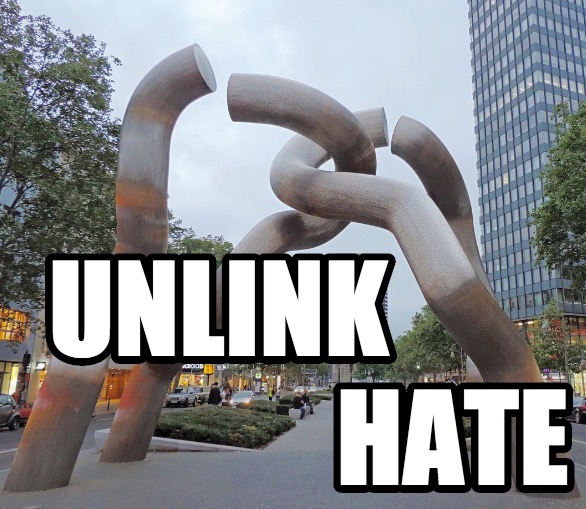
Librarians: please unlink or nofollow sites you don’t want to lend your authority to. Continue reading “Unlink hate – libraries, remove those links to racist websites”
putting the rarin back in librarian since 1999

Librarians: please unlink or nofollow sites you don’t want to lend your authority to. Continue reading “Unlink hate – libraries, remove those links to racist websites”
As many of you may know, my long term goal is to be able to live in or at the library I work at. So I enjoyed this paragraph from the New Yorker Article about how the internet gets inside us immensely, though I worry my desires may become trendy.
“There is, for instance, a simple, spooky sense in which the Internet is just a loud and unlimited library in which we now live—as if one went to sleep every night in the college stacks, surrounded by pamphlets and polemics and possibilities. There is the sociology section, the science section, old sheet music and menus, and you can go to the periodicals room anytime and read old issues of the New Statesman. (And you can whisper loudly to a friend in the next carrel to get the hockey scores.) To see that that is so is at least to drain some of the melodrama from the subject. It is odd and new to be living in the library; but there isn’t anything odd and new about the library.”
“The Department of Justice wants to broaden the authority of the Americans with Disabilities Act in regard to the Internet and specifically websites. Today is the final day for public comment on that proposal. Meanwhile, new data has emerged that shows far fewer people with disabilities using the Internet than people without. ”
Disabled folks have less internet access than non-disabled people. The access they do have is often more challenging because of poorly-understood or -implemented website accessibility features. I encourage you to comment, especially if you work in a publicly-funded library. Direct link to the proposed changes: Nondiscrimination on the Basis of Disability: Accessibility of Web Information and Services of State and Local Government Entities and Public Accommodations
It’s been a while since I’ve posted about any of the Pew Reports coming out. I’d like to mention that when I was finishing the copy edits on my book, they replaced every instance of “Pew says…” with “The Center says…” so, sorry about that. I vacillate about feeling like Pew tells it like it is, offering research instead of punditry about internet topics. Their researched conclusions so closely match many of my (knee-jerk) own, I wonder if they’re not more internet boosters than I can see with my own biases and blinders. The upshot of this survey: increased internet use is not making Americans more isolated.
In any case, their new report Pew Internet Social Isolation and New Technology is my second lengthy read for today. Be sure to read the interesting side note The GSS Controversy in which they consider that using the verb “discuss” to refer to people communicating with others may have eliminated non-talking options form people’s minds [i.e. texting and emailing].
Some have worried that internet use limits people’s participation in their local communities, but we find that most internet activities have little or a positive relationship to local activity. For instance, internet users are as likely as anyone else to visit with their neighbors in person. Cell phone users, those who use the internet frequently at work, and bloggers are more likely to belong to a local voluntary association, such as a youth group or a charitable organization.
I’ve been getting over a nasty flu just on the backside of the MIT Mystery Hunt so I’ve been a little scarce. I also pretty much slept through most of the Inauguration festivities yesterday. However, I didn’t need to listen to speeches or see record crowds to know that some things are changing. I think Obama is as fallible as the next human being, but I’ve been encouraged at a few of the things that have happened this week, some intentional, some coincidental.
The first is Obama’s immediate revocation of Executive Order 13233, an order by the Bush administration that, according to the National Coalition for History, “severely limited access by the public to presidential records” You can read the offical text of the order on the revamped Whitehouse.gov which I recommend a look at.
The second good news this week was the Supreme Court declining to review “a Third Circuit Court decision last July striking down the Child Online Protection Act of 1998.” In other words, COPA was struck down by a US District judge, a decision which was upheld by the Third Circuit Court of Appeals and then contested by the Bush Administration to the US Supreme Court who, this week, refused to hear it. You can read the timeline yourself on Wikipedia. The Supreme Court’s failure to act is pretty much the death knell for COPA, a law that never took effect. While not as applicable to libraries as CIPA, the law itself does touch on whether or not restricting or prohibiting materials as “harmful to minors” is itself a problematic restriction on speech. U.S. District Judge Lowell Reed commented “perhaps we do the minors of this country harm if First Amendment protections, which they will with age inherit fully, are chipped away in the name of their protection.”